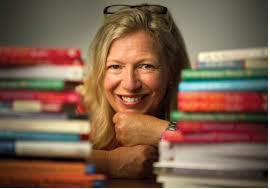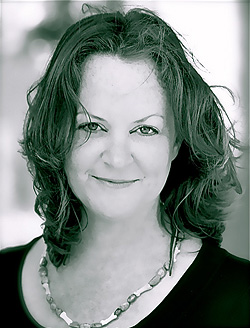 As a child, Kristen Weber thought she wanted to be a cop. Thankfully for the literary world, her love of books eventually won out. After years as an editor for top shelf brands like Penguin and Mysterious Press, Kristen set out on her own. These days she is one of the industry’s most respected independent book editors, and the go-to person for a bevy of agents, publishing houses and bestselling authors looking to turn a good manuscript into a stellar one that sells. I sat down with her recently to talk about her work, the industry and the most common mistake most aspiring authors make on their path to publication.
As a child, Kristen Weber thought she wanted to be a cop. Thankfully for the literary world, her love of books eventually won out. After years as an editor for top shelf brands like Penguin and Mysterious Press, Kristen set out on her own. These days she is one of the industry’s most respected independent book editors, and the go-to person for a bevy of agents, publishing houses and bestselling authors looking to turn a good manuscript into a stellar one that sells. I sat down with her recently to talk about her work, the industry and the most common mistake most aspiring authors make on their path to publication.
Open Mic: When should an aspiring author use a freelance editor? What does someone like you have to offer beyond what they might get from their writing group or beta readers?
Weber: This is like asking why someone should go to a doctor when you can just get a band-aid from CVS. I’m coming to your work with decades of experience. I once was the exact type of gatekeeper you’re trying to impress. I know what agents and editors are looking for. Also, beta readers and other writers often have their own biases and agendas. My only agenda is to help you push your writing and story to the next level, while keeping your voice and vision intact.
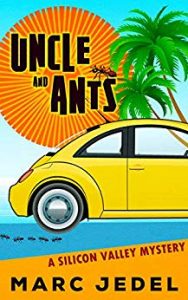
Open Mic: What kind of questions should an aspiring author ask themselves before seeking out an editor?
Weber: You need to make sure you’re truly ready to hear constrictive criticism. If you’re just looking for someone to say your work is perfect, this process isn’t for you. Even if you don’t agree with every note an editor gives you, it is best to come into the process with an open mind.
Open Mic: Consequently, what questions should a writer who is thinking of using a freelance editor ask of that person before they sign on?
Weber: What published books have you edited? Can I speak to a few of the authors you’ve worked with? You want them to have a real track record of successfully published books and happy clients.
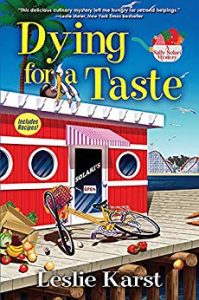
Open Mic: Is there a red flag that should automatically cause a writer to avoid a freelance editor?
Weber: The writing community is small, so check blogs and ask other writers. You’ll learn pretty fast who to avoid, especially if they don’t have a proven track record of successfully published books.
OM: I’ve known people who have paid agents a fee – sometimes a very large one – to edit their work under the premise they might then represent their work. What do you think of this?
Weber: I think this is an example of someone taking advantage of their position. Agents do edit their clients work, but usually after they’ve agreed to representation and at no extra charge. I think this is one of the “red flags” authors should be extremely wary of.
Open Mic: Are most of your clients individual authors or publishing houses that have already signed an author to a contract?
Weber: I work with all sorts of different clients. Many of my clients are individual authors who are either seeking agent representation and a traditional publisher or plan to independently publish, without an agent or publishing house. I also work for agents. They might hire me to do a second read on a book they’re thinking about acquiring or send clients they’ve signed to me when they don’t have time to edit the books themselves. And I work for a few publishing houses, as one of the freelance editors in their stables.
Open Mic: How many of your clients go on to self-publish rather than obtain legacy publication?
Weber: I would say my client list is split in half. But regardless of how they end up publishing, traditionally or independently, I would say almost all of my clients end up happily published in some way.
Open Mic: So many writers now note in their queries that their manuscript has been professionally edited. Does that really carry significant weight with a publisher or agent they way writers think it does?
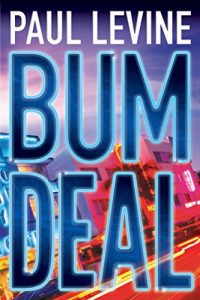 Weber: I’d only mention this if you include the name of the editor who helped you – and they have a stellar reputation.
Weber: I’d only mention this if you include the name of the editor who helped you – and they have a stellar reputation.
Open Mic: What is the most common mistake you see in the manuscripts you edit?
Weber: Showing vs. telling. I could write a book on this. Basically, you want to make sure you’re letting your readers see what is happening through description. It doesn’t mean anything to tell us someone is happy, for example. We need to see it for ourselves through how they look, speak, and act.
Open Mic: The industry has changed a lot over the last twenty years. Do you think things are better now or worse for writers?
Weber: While it can often feel like you’re shouting into the void due to the sheer amount of content out there, writers have so much more freedom. There are so many more places to publish, but you can also create a strong career for yourself publishing independently. I feel the same way about myself. I can edit anything that strikes my fancy and I’m having so much fun.
Open Mic: Where do you see the industry being in five years? What are the next major changes on the horizon?
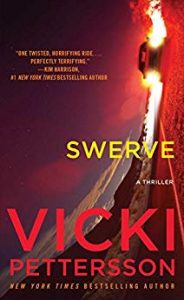 Weber: The only thing I am sure about is that as long as people are writing, they will always need editors. I’m happy to just sit back and let all the changes unfold.
Weber: The only thing I am sure about is that as long as people are writing, they will always need editors. I’m happy to just sit back and let all the changes unfold.
OM: Have you ever had to fire a client?
Weber: No. I vet my clients as carefully as I hope they vet me. I am looking for a long term relationship. And happily, most of my clients come back to me for multiple books.
Open Mic: I like to end on what I hope is a fun question. Let’s say I can put you together with just one of the following three people for dinner and a conversation. Your choices are: Jacquelyn Kennedy Onassis, Margaret Mitchell, or Harper Lee.
Weber: Harper Lee. I could talk to her all night about To Kill a Mockingbird, but I hope she’d let me ask some questions about her relationship with Truman Capote as well!



